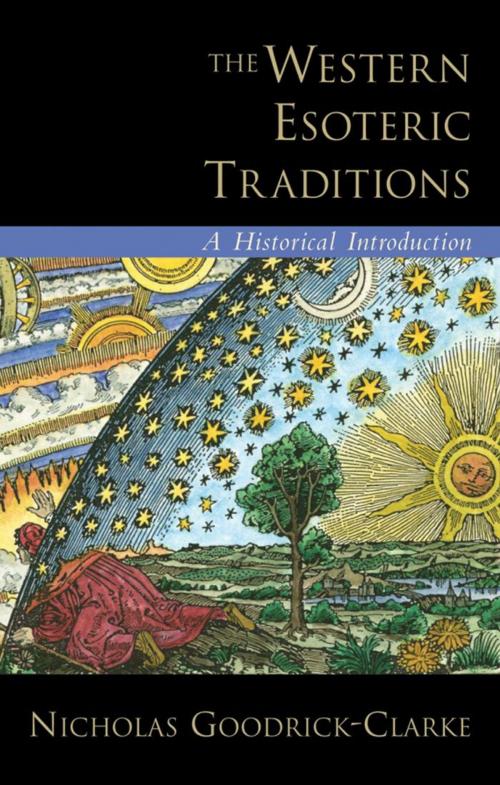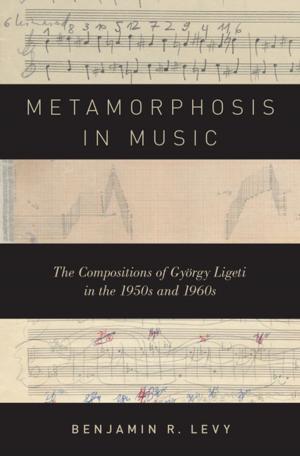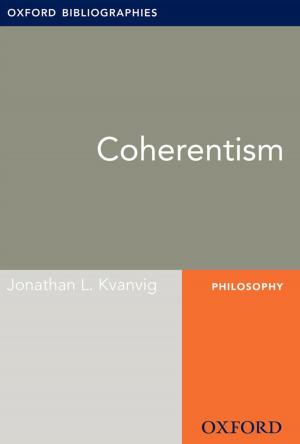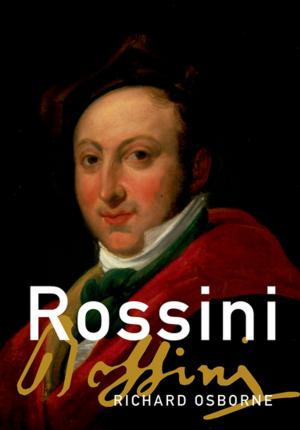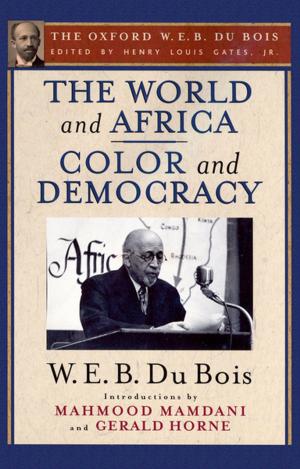The Western Esoteric Traditions
A Historical Introduction
Nonfiction, Religion & Spirituality, Eastern Religions, Buddhism| Author: | Nicholas Goodrick-Clarke | ISBN: | 9780199886494 |
| Publisher: | Oxford University Press | Publication: | October 14, 2008 |
| Imprint: | Oxford University Press | Language: | English |
| Author: | Nicholas Goodrick-Clarke |
| ISBN: | 9780199886494 |
| Publisher: | Oxford University Press |
| Publication: | October 14, 2008 |
| Imprint: | Oxford University Press |
| Language: | English |
Western esotericism has now emerged as an academic study in its own right, combining spirituality with an empirical observation of the natural world while also relating the humanity to the universe through a harmonious celestial order. This introduction to the Western esoteric traditions offers a concise overview of their historical development. Nicholas Goodrick-Clarke explores these traditions, from their roots in Hermeticism, Neo-Platonism, and Gnosticism in the early Christian era up to their reverberations in today's scientific paradigms. While the study of Western esotericism is usually confined to the history of ideas, Goodrick-Clarke examines the phenomenon much more broadly. He demonstrates that, far from being a strictly intellectual movement, the spread of esotericism owes a great deal to geopolitics and globalization. In Hellenistic culture, for example, the empire of Alexander the Great, which stretched across Egypt and Western Asia to provinces in India, facilitated a mixing of Eastern and Western cultures. As the Greeks absorbed ideas from Egypt, Babylon, Assyria, and Persia, they gave rise to the first esoteric movements. From the late sixteenth to the eighteenth centuries, post-Reformation spirituality found expression in theosophy, Rosicrucianism and Freemasonry. Similarly, in the modern era, dissatisfaction with the hegemony of science in Western culture and a lack of faith in traditional Christianity led thinkers like Madame Blavatsky to look East for spiritual inspiration. Goodrick-Clarke further examines Modern esoteric thought in the light of new scientific and medical paradigms along with the analytical psychology of Carl Gustav Jung. This book traces the complete history of these movements and is the definitive account of Western esotericism.
Western esotericism has now emerged as an academic study in its own right, combining spirituality with an empirical observation of the natural world while also relating the humanity to the universe through a harmonious celestial order. This introduction to the Western esoteric traditions offers a concise overview of their historical development. Nicholas Goodrick-Clarke explores these traditions, from their roots in Hermeticism, Neo-Platonism, and Gnosticism in the early Christian era up to their reverberations in today's scientific paradigms. While the study of Western esotericism is usually confined to the history of ideas, Goodrick-Clarke examines the phenomenon much more broadly. He demonstrates that, far from being a strictly intellectual movement, the spread of esotericism owes a great deal to geopolitics and globalization. In Hellenistic culture, for example, the empire of Alexander the Great, which stretched across Egypt and Western Asia to provinces in India, facilitated a mixing of Eastern and Western cultures. As the Greeks absorbed ideas from Egypt, Babylon, Assyria, and Persia, they gave rise to the first esoteric movements. From the late sixteenth to the eighteenth centuries, post-Reformation spirituality found expression in theosophy, Rosicrucianism and Freemasonry. Similarly, in the modern era, dissatisfaction with the hegemony of science in Western culture and a lack of faith in traditional Christianity led thinkers like Madame Blavatsky to look East for spiritual inspiration. Goodrick-Clarke further examines Modern esoteric thought in the light of new scientific and medical paradigms along with the analytical psychology of Carl Gustav Jung. This book traces the complete history of these movements and is the definitive account of Western esotericism.
